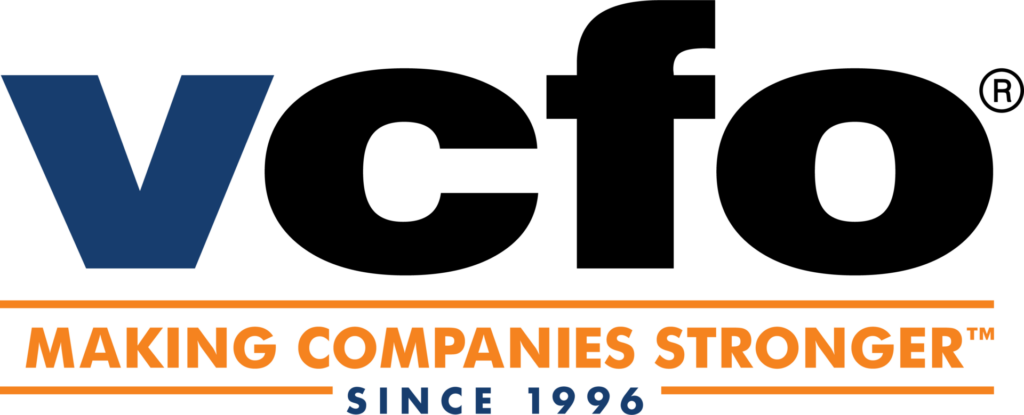Recommended Actions to Address Pandemic Business Risks
Take Care of Your People
- Communicate with your staff regularly providing assurance you are monitoring the situation and on top of it. Consider scheduling all hands calls to keep your team connected, informed, and confident that you are on top of things.
- Ensure employees know you want them to follow CDC recommendations to stay safe.
- Make sure employees understand how company insurance plans are covering COVID-19 testing and related care during this crisis.
- Implement remote working protocols where possible and as necessary. Test them as well before you find yourself having to rely on them.
- Implement other policies as needed with your workforce such as limiting travel and suspending networking activities and employee gatherings.
Below, we address several policy changes vcfo has made as they relate to working with our clients. Additionally, we have implemented a number of internal staff policies to accomplish the above recommendations for our own team. As an example, we have front loaded our employer contribution to employee HSA plans (rather than the more common per pay period contributions through the year), and we have created a reserve fund that can be tapped to help employees who fall ill with COVID-19.
If you find yourself wondering what to do, please don’t hesitate to reach out to your vcfo team for an HR consult and advice on implementing what you need for your team.
Strategic Concerns
Run sensitivities on your forecast / budget incorporating various assumptions answering the following questions as well as others applicable to your firm:
- If you have a budget in place, it will be changing as a result of this. If you do not, this is an excellent time and reason to prepare one, at least short-term.
- Will supply chain delays worldwide impact production for you or your clients? Can you or your clients import parts needed and/or inventory to fulfill orders?
- Are key clients at risk of impact from the virus in ways that will impact (reduce) their purchases from you, impacting your revenue forecast? Consider all of these concerns and how they might impact your clients and key vendors and how that in turn impacts your business.
- Will any of the restrictions on travel and gatherings impact your business (reduce sales capabilities or fundraising presentations as examples)? If you aren’t Costco or Walmart, likely you will be negatively impacted at some level. Make reasonable assumptions on reduced revenue and run at least three scenarios (best, worst, most likely cases).
- How long might this last? (Run at least three scenarios assuming a one quarter, two quarter, and full year duration for impact).
- Project at what point your debt covenants would be negatively impacted. Review the terms of your financing instrument(s). Test this for each scenario. If your most likely case will trigger a covenant problem, watch closely what actually unfold for you. Be sure to stay in contact with your bank about the possible need for a waiver. It’s always best to ask for that before you actually break a key debt covenant.
- How prepared are you to manage the cash that would be needed for the various scenarios? Be sure to prepare a balance sheet associated with each scenario and incorporate changes to your current cash cycle.
- Review key function coverage and process documentation across the company, including but not limited to: payroll, accounts payable, banking, invoicing, purchasing, and fulfillment to ensure coverage in the event one or more of your employees fall ill or have an extended absence.
Your vcfo team is available to help you with any and all of the above as needed. The time to prepare to weather the potential financial consequences of this crisis is NOW.
Protect Cash and Your Bottom Line
- Pay close attention to your Accounts Receivable. Consider implementing a weekly if not daily review so necessary actions can be taken sooner. Review your customers. Do you have customers who will be adversely affected in a way that might impact their ability to pay you? Prioritize your attention to include those accounts.
- If you are already in a tight cash position or anticipate significant impact to your ability to pay bills in the normal course of business as a result of your scenarios created above, prepare a weekly detailed 12- week cash flow as a working guide. Update it at least weekly, revising as necessary when actuals don’t meet your projections and in turn impact your planned payments.
- Postpone discretionary spending. If it isn’t absolutely essential to do it now, postpone it to improve both your profitability and your cash position.
- Delay capital expenditures. Again, unless its absolutely critical to make a capital purchase, postpone it to improve your cash position.
- Pay bills when due but not early. If there is a discount for early payment that you routinely take, consider passing on it for the moment to ensure you are in the strongest cash position during this crisis.
- Review investment policies and consider holding cash.
- Do not under any circumstances delay tax payments related to payroll. The penalties on this are crippling to both the business and personally to the individuals who influenced the nonpayment. We see a surprising number of companies who have been caught in this trap, delaying payment to a date in the future when they believe they will have more cash. Don’t do it. If you can’t pay the taxes when due, you need to cut employee expense immediately.
Again, your vcfo team is available to help you with any and all of the above as needed. The time to prepare to weather the potential financial consequences of this crisis is NOW.
Pay Attention to your IT Infrastructure – There is no time better than a crisis for other mischief makers to emerge
- Remind staff to be vigilant about phishing efforts. Employees need to be especially wary of what look like scary subject lines; things like “request for money for stranded employees”, “click here for an updated Coronavirus map”, and the like. Have them forward suspicious emails to your IT department for validation. When in doubt, do not click should be your guidance.
- Ensure your cyber protection is in place and updated with the latest updates.
- Consider requiring regular password changes across the company.
- Test your remote working capabilities. Consider a test Work From Home day to identify any issues with your remote working capabilities, including phone systems, video conferencing, system access, capacity, etc.
At vcfo we are not IT experts. We know this is a real risk area and that is the basis of our concern. We outsource our own IT support. If you do not have adequate internal resources to assure you are sufficiently protected, please talk with your vcfo team for an introduction to our own outsourced resource and others if applicable for possible engagement to support you.
The time to prepare to weather the potential financial consequences of this crisis is NOW.
Confidential information of vcfo Holdings, Inc. and its subsidiaries. No use, reproduction or disclosure is allowed without the written approval of vcfo Holdings, Inc. Copyright © 2020 vcfo Holdings, Inc. All rights reserved. vcfo and certain other marks are the trademarks and registered trademarks of vcfo Holdings, Inc. in the United States and other countries. Certain other marks, if referred to, are the trademarks of their respective companies.

